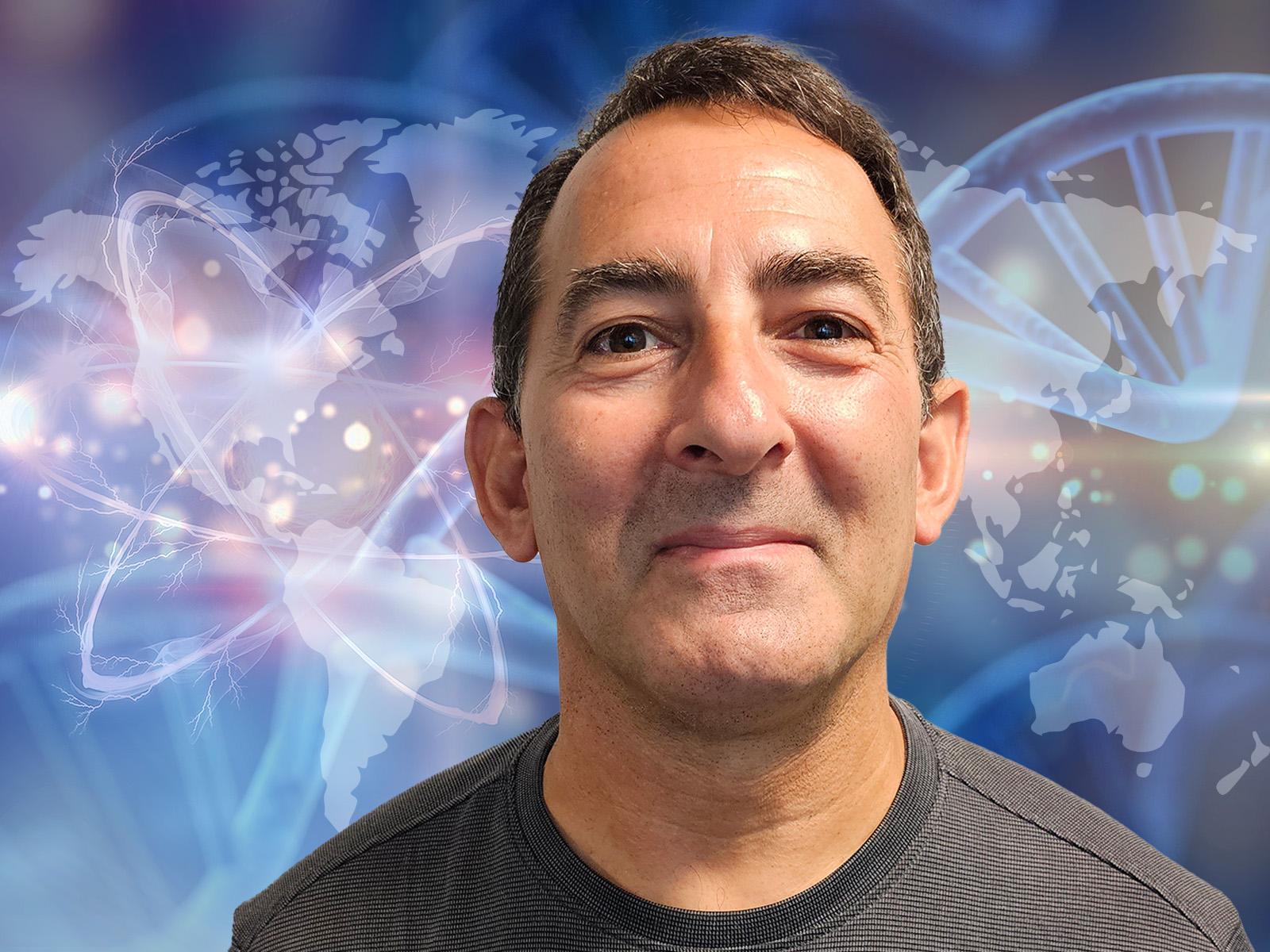Forman Serves on U.S. Delegation to Biological Weapons Convention
Panels explored international cooperation, science and technology advice, and national implementation for an international disarmament and nonproliferation treaty

Jonathan Forman served on the U.S. delegation at the second meeting of the Working Group on Strengthening the Biological Weapons Convention, which took place at the United Nations Office in Geneva, Switzerland.
(Image composition by Shannon Colson | Pacific Northwest National Laboratory)
Through participation in multilateral arms control, disarmament, and nonproliferation forums, staff at Pacific Northwest National Laboratory help bridge gaps between the science, technology, and policy considerations required to counter and eliminate threats to global security. In August 2023, Jonathan Forman, a science and technology advisor in Pacific Northwest National Laboratory’s Threat Prevention and Resilience group, was selected to serve on the delegation of the United States of America at the second meeting of the Working Group on Strengthening the Biological Weapons Convention (BWC) which took place at the United Nations Office in Geneva, Switzerland. Forman joined this working group as an advisor to the U.S. delegation led by led by Kenneth D. Ward, U.S. Special Representative to the BWC.
The working group, which is open to all of the more than 180 countries that have joined the BWC, is tasked with developing proposals to strengthen the treaty in seven key areas—which nations of the world will deliberate on adopting as early as 2025.
The BWC is an international disarmament and nonproliferation treaty that prohibits the development, production, acquisition, transfer, stockpiling, and use of biological and toxin weapons. It was the first multilateral treaty to ban an entire category of weapons of mass destruction, entering into force in 1975. The working group was established in 2022 to make recommendations on measures to strengthen the BWC, with a focus on leveraging advances in science and technology; transparency, compliance, and verification; national implementation measures and international cooperation; and preparedness and response. The August meeting included a series of panels focused on cooperation and assistance programs and initiatives, developments in science and technology, mechanisms to review and assess scientific and technological developments relevant to the convention, and national implementation.
Forman was selected to take part in the delegation on behalf of the Department of Energy’s National Nuclear Security Administration Office of Defense Nuclear Nonproliferation. His role was to provide advice and support the U.S. representatives to the BWC on issues related to science and technology and science advice in multilateral treaty organizations. Forman has deep expertise in these matters, previously having served as the Science Policy Adviser to the Organisation for the Prohibition of Chemical Weapons—the implementing body of the Chemical Weapons Convention, a chemical disarmament and nonproliferation treaty joined by over 190 countries.
“The provision of science advice for multilateral arms control, disarmament, and nonproliferation is critical to informing policy and decision-makers about the issues they are deliberating and the impact of science and technology on treaty implementation,” said Forman. “The BWC presents a complex environment at the intersection of science, technology, policy, security, and international relations. It is a great honor for me to be able to contribute to the mission to strengthen global efforts for preventing and eliminating biological weapons as a member of the U.S. delegation in this forum.”
Documents and further information can be found on the United Nations Office of Disarmament Affairs website.
Published: September 21, 2023